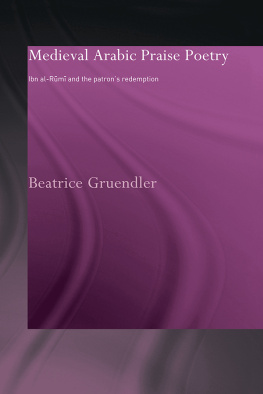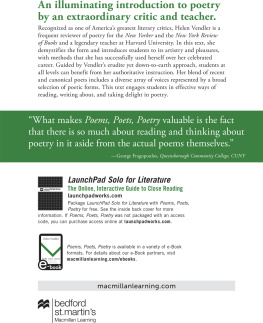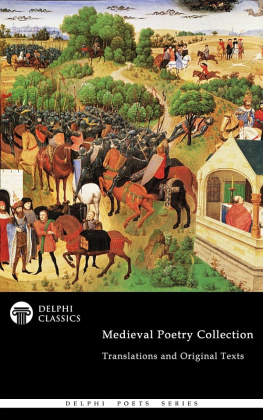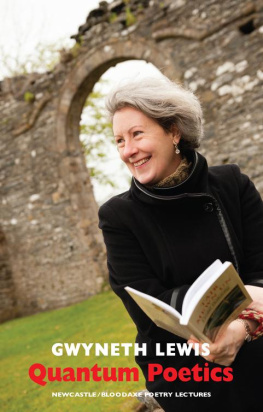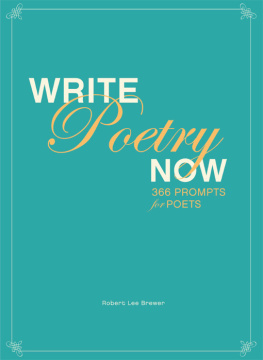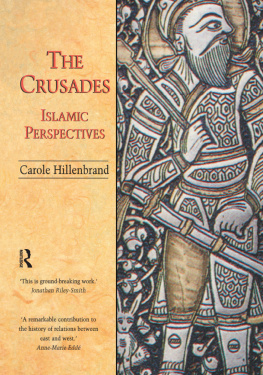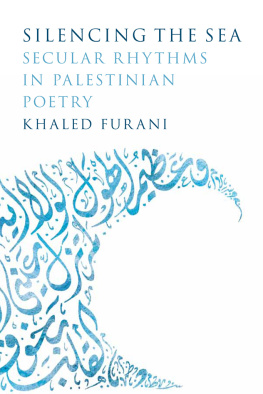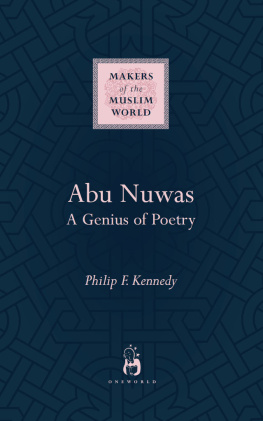MEDIEVAL ARABIC PRAISE POETRY
This book gives an insight into panegyrics (mad), a genre central to understanding medieval Near Eastern society. Poets in this arabophone multiethnic society would address the majority of their verse to rulers, generals, officials, and the urban upper classes, its tone ranging from celebration to reprimand and even to threat.
Beatrice Gruendler discusses this panegyric genre as represented by Ibn al-Rm, who dedicated many of his poems to the last hirid governor of Baghdad. Ibn al-Rms work is ideally suited to this study, as it addresses the issue of literary patronage and provides a self-portrait of the artist and his social position.
This book will be of interest to scholars of comparative literature, anthropology, linguistics, medieval studies and Near Eastern studies.
Beatrice Gruendler is Professor of Arabic Language and Literature at Yale University. She has published widely on Arabic poetry and paleography, including The Development of the Arabic Scripts: From the Nabatean Era to the First Islamic Century (Atlanta, Georgia: Scholars Press, 1993) and, with Verena Klemm, Understanding Near Eastern Literatures: A Spectrum of Interdisciplinary Approaches (Wiesbaden: Reichert, 2000).
ROUTLEDGECURZON STUDIES IN ARABIC AND MIDDLE-EASTERN LITERATURES
Edited by James E. Montgomery, University of Cambridge, Roger Allen, University of Pennsylvania, and Philip F. Kennedy, New York University
RoutledgeCurzon Studies in Arabic and Middle-Eastern Literatures is a monograph series devoted to aspects of the literatures of the Near and Middle East and North Africa both modern and pre-modern. It is hoped that the provision of such a forum will lead to a greater emphasis on the comparative study of the literatures of this area, although studies devoted to one literary or linguistic region are warmly encouraged. It is the editors objective to foster the comparative and multi-disciplinary investigation of the written and oral literary products of this area.
SHEHERAZADE THROUGH THE LOOKING GLASS
Eva Sallis
THE PALESTINIAN NOVEL
Ibrahim Taha
OF DISHES AND DISCOURSE
Geert Jan van Gelder
MEDIEVAL ARABIC PRAISE POETRY
Beatrice Gruendler
MEDIEVAL ARABIC PRAISE POETRY
IBN AL-RM AND THE PATRONS REDEMPTION
Beatrice Gruendler

First published in 2003
by Routledge
2 Park Square, Milton Park, Abingdon, Oxon, OX14 4RN
Simultaneously published in the USA and Canada
by Routledge
270 Madison Ave, New York NY 10016
Routledge is an imprint of the Taylor & Francis Group
Transferred to Digital Printing 2010
2003 Beatrice Gruendler
All rights reserved. No part of this book may be reprinted or reproduced or utilised in any form or by any electronic, mechanical, or other means, now known or hereafter invented, including photocopying and recording, or in any information storage or retrieval system, without permission in writing from the publishers.
British Library Cataloguing in Publication Data
A catalogue record of this book is available from the British Library
Library of Congress Cataloging in Publication Data
A catalog record for this book has been requested
ISBN10: 0700714901 (hbk)
ISBN10: 0115595797 (pbk)
ISBN13: 9780-700714902 (hbk)
ISBN13: 9780-115595797 (pbk)
Publishers Note
The publisher has gone to great lengths to ensure the quality of this reprint but points out that some imperfections in the original may be apparent.
Isnt there for every writer a particular thing of that sort, the thing that most makes him apply himself, the thing without the effort to achieve which he wouldnt write at all, the very passion of his passion, the part of the business in which, for him, the flame of art burns most intensely? Well, its that!
... It was something, I guessed, in the primal plan; something like a complex figure in a Persian carpet. He highly approved of this image when I used it, and he used another himself. Its the very string, he said, that my pearls are strung on!
(Henry James 1958, 1412, 149)
Es ist anzunehmen, da vor allem die Erfndungsgabe der Autoren den wissenschaftlichen Dialog zum literarischen Dialog nie abreien lassen wird.
(Anne Betten 1994, 538)
CONTENTS
Why study medieval Arabic praise poetry? To give a straightforward response, this genre is pivotal for anyone interested in the Golden Age of the medieval Near East a time when Baghdad and Samarra were capitals of a cosmopolitan, if turbulent, civilization, and every person of merit, from lute-player to lexicographer, sought entry to the Abbasid court. This significance of praise poetry, or mad, may come as a surprise. More likely the reader has encountered the loose wine song (khamriyya) from the taverns of Baghdad and nearby cloisters or the flirtatious love lyric (ghazal) from the Baghdadian and Samarran courtly circles. Both were restricted to intimate settings, as they flouted, or at least sidestepped, the official Islamic doctrine. Mad in contrast was performed in the caliphs public audiences, as praise poetry enshrined the Abbasid ruler ideology and its Islamic world-view Historiography attests to victories or enthronements of caliphs by the panegyrics composed for them, as it conversely documents times of strife through poets satires and lamentations. The lighter adab literature preserves innumerable accounts (akhbr) of mad performances, and in poets collected works (dwns), mad almost always occupies the prominent position. For these (and other) reasons, mad is omnipresent as well as replete with the doctrinal, ideological, and ethical values of Abbasid urban society, and its study affords important insights about Medieval Arabic-Islamic civilization.
The high visibility of mad can be explained by the literary prestige it conferred upon a ruling dynasty a validation no other cultural practice could confer. As a continuous literary tradition since the time before Islam, mad linked the Abbasid caliphate with the heroic Arab past (Jhiliyya) as well as comparing it to the ancient civilizations of Byzantium and Persia. This required that poets possess an in-depth knowledge of their poetic heritage and the ability to recall any part of it on a given occasion, which led some to compile systematic anthologies of quotable verse. More important, they were called upon to ply this heritage to a new literary aesthetic, while heeding prevailing political agendas. A poet who mastered these challenges gave leadership figures a verbal aura they highly prized.
Recent scholarship has begun to remedy the long-standing neglect of mad, owing to its textual difficulty as much as to its suspect quality of merchandise. Regarding the first point, the study of Arabic mad is still a sum of single efforts, lacking a systematic survey of the genre and its themes, motifs, and styles. Regarding the second point, there is no better time than the twenty-first century to concede the fact that art and commerce might form a complex, if ambivalent, symbiosis. In medieval Arabic praise, trade appears as a frequent image and it lacks intrinsic negative connotations as well as the (modern) distinction between moral and material exchange. The usefulness of mad was not only unobjectionable, it constituted part of this poetrys very value. The key to a fair evaluation of mad lies then in choosing an adequate framework of enquiry; to do justice to this poetic quest requires taking into account its status and function within the contemporary Abbasid society. What role did
Next page
